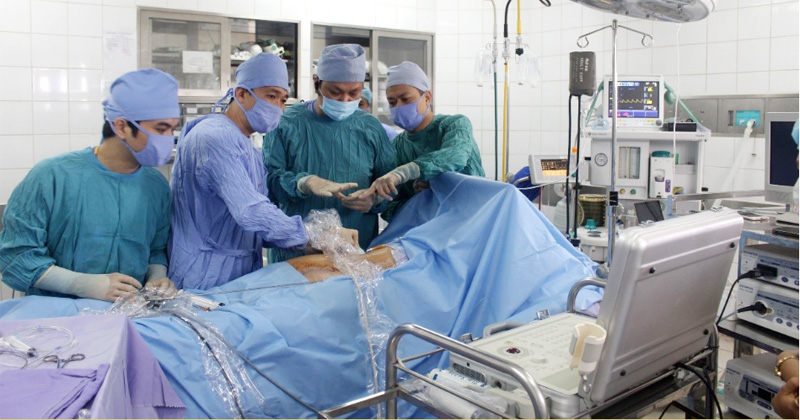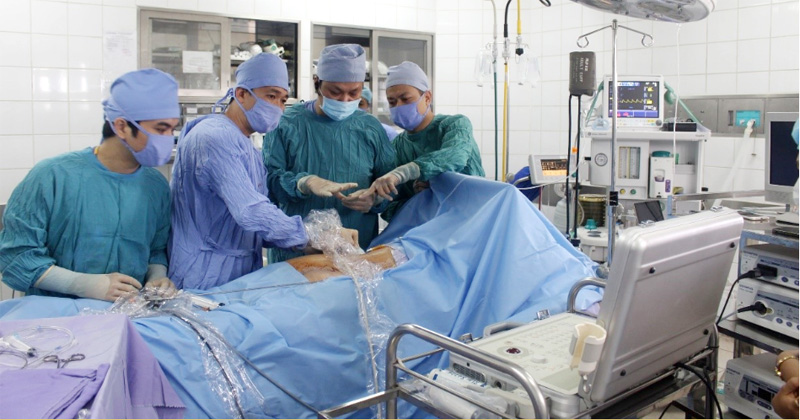
(HBO) - From the beginning of July 2018, the Hoa Binh General Hospital has received over 700 patients per day, much higher than 400-500 patients previously. This shows the hospital is regaining people’s trust after the medical incident at its kidney dialysis division in 2017.
Towards the goal
of becoming a complete first-class general hospital by 2020, the hospital will
firstly build itself into a green, clean and beautiful medical establishment.
It will focus on improving the quality of services, towards public health care
and meeting patents’ satisfaction.
Among its nearly 700 staff and medical workers, there are the three PhDs, two post-graduates,
nine masters, 20 second-level specialists; 49 first-level specialists; and 84
doctors.
The hospital has provided 13,061 techniques, including 11,278 provincial-level
and 1,783 central-level ones.
Many surgical
procedures applied in central-level hospitals have been successfully implemented
in the hospital, contributing to reducing treatment costs for people.
The hospital has also performed complicated surgical techniques such as brain tumor surgery; colorectal
surgery through endoscopy; cataract surgery by phacoemulsification; hemodialysis,
plasma replacement and chemotherapy.
The gene screening test of thalasemia and the neonatal screening test for
detecting congenital hypothyroidism are also conducted in the hospital. From June 2018, the hospital has provided the treatment
service for children with autism in the Pediatrics ward.

The surgical kidneystone removal through
the skin is performed in the hospital
Apart from the professional work, the
hospital has also stepped up humanitarian activities. In the first six months
of 2018, the hospital and charitable organizations provided nearly 63 million
VND in cash and items for 174 poor patients, and gave porridge valued at 104
million VND to inpatients./.
The emulation movement "Hoa Binh joining hands to build new-style rural areas” has been widely spreading, becoming a driving force that motivates the localities to renew rural landscapes and improve the material and spiritual lives of the residents. In this movement, the people play a central role-both as the main implementers and direct beneficiaries of its outcomes.
In response to the global digital revolution, Hoa Binh Newspaper is transforming itself into a modern and multi-platform media hub, blending cutting-edge technology with a restructured newsroom and a new generation of tech-savvy journalists.
Hoa Binh province’s Association of the Elderly recently held a conference to review the project on expanding the inter-generation self-help club model until 2025.
In a move to implement Resolution No. 57-NQ/TW, issued on December 22, 2024 by the Politburo, which targets breakthroughs in science-technology development, innovation, and digital transformation, the Hoa Binh provincial Department of Health has issued a plan to roll out the "Digital Literacy for All” campaign within the local health sector.
An Nghia Commune (Lạc Sơn District) is one of the communes that achieved the tha standard of the national new rural area in 2018. Entering a new development phase, the commune is now trying to meet the criteria for the advanced new rural development. With the strong political will and the public consensus, the commune is gradually overcoming the challenges to reach this goal, aiming for the sustainable development.



